
Viet Nam Museum of Ethnography
- on Nov 17, 2020 By: BN
For many people, the word "museum" is synonymous with closed spaces, somewhat austere with masses of information and rather monotonous activities. Be surprised by the Vietnam Museum of Ethnography in Hanoi, which reinvents the notion of a museum!
Found a little far from the centre of the city, this place is nevertheless one of the most popular in the capital. As a result of Vietnamese-French cooperation, this monument was built in 1987 and inaugurated in 1997 during the Francophone Summit in the presence of French President Jacques Chirac. A collaborative effort between two Vietnamese and French architects resulted in success by showcasing an original museum that cannot be seen anywhere else.
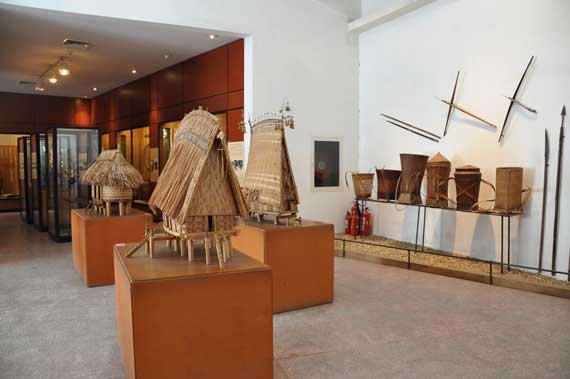
Its organisation, distinguished by a harmonious union between interior and exterior, makes your visit both a rewarding and relaxing hike. Which also means that it takes a little effort to get around it. Indeed, with an area of 4.5 ha, the museum is one of the largest sites in Hanoi.
Colourful exhibitions highlight, in an original way, the main characteristics of all Vietnamese ethnic groups. We discover the cultural mosaic of the 54 ethnic groups living in Vietnam and also a concise panorama of the Southeast Asian region.
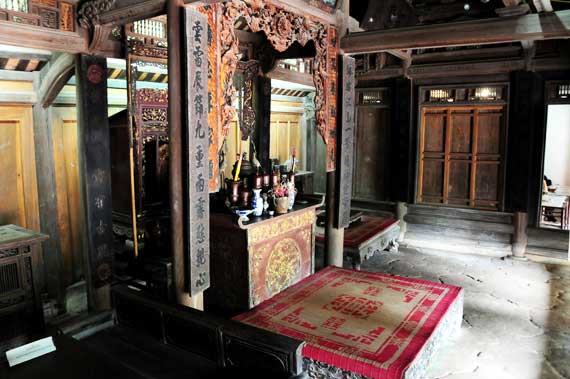
The family environment of the Viet
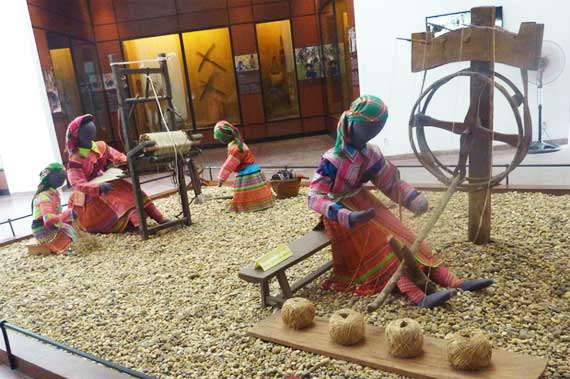
The traditional weaving of the Dao and H'Mong ethnic groups
Far from being a simple exhibition space, the Museum of Ethnography offers its superb collections in welcoming and friendly spaces covering three main themes: the exhibition in the Bronze Tambour building, the outdoor exhibition and the Southeast Asia exhibition. The different cultures are vividly illustrated in terms of architecture, craftsmanship, music and traditional customs.
The Bronze Drum building with an area of 2500m2 is composed of 2 floors dealing with nine themes: generality of 54 Vietnamese ethnic groups, Viet-Muong group, Thai-Kadai group, Mong-Dao group, Han-Tibet group, Mong-Khmer group, Malayo-Polynesian group, the Cham, Hoa, Khmer ethnic groups and the exchanges between ethnic groups.
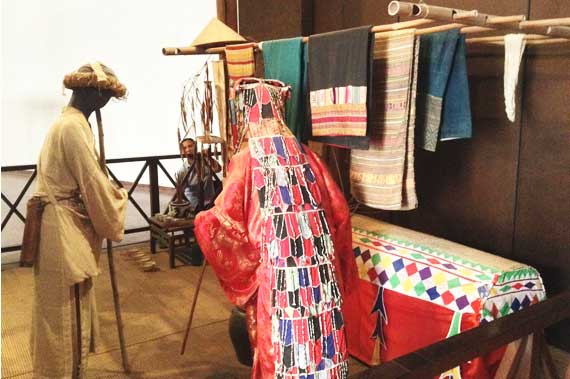
The funeral of the Muong
The ground floor houses an abundance of objects, images and videos exposing Vietnamese society and populations according to their geographical origin and then the characters of specific groups such as those of the Viet, Muong, Tho, Chut, etc. Many visitors do not hide their enthusiasm by discovering the method of making the conical hats of the Viet, the funeral customs of the Muong, the weaving techniques of the Dao or the wedding ceremony of the Hmong.
The 1st floor, meanwhile, is rich in objects from the daily life of other ethnic groups namely, among others, Tay, Nung, Thai, Lo Lo, Xo dang, Gia Rai... tracing the silhouette of the country from North to South.
Then the exterior, a park as spacious as it is refreshing, must convince visitors of all ages for its breath-taking charm with very original homes. We appreciate ten styles of typical houses reconstructed in real size and fitted out by members of minority ethnic groups on their way to Hanoi. They are more attractive than the others, especially the Tay stilt house, the completely wooden Hmong house, the Gia Rai funeral house, the 19 m high Ba Na communal house (nha Rong), the Terracotta house (trinh tuong) of the Ha Nhi….), the longhouse of the E De and of course, the house with the roof of Viet.
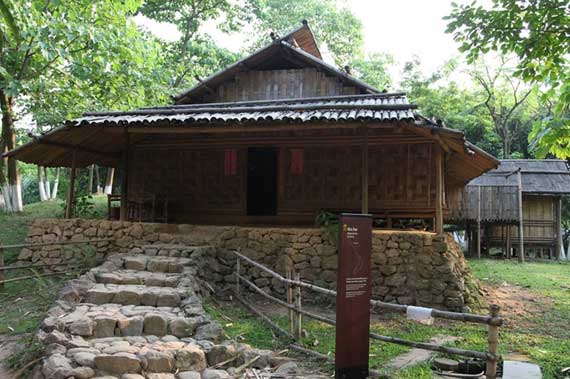
The home of the Dao ethnic group, Lao Cai
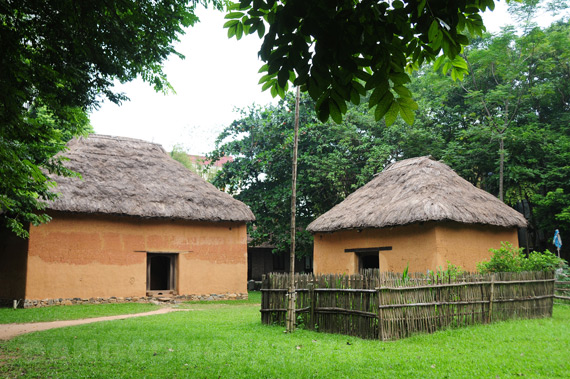
The house of the Ha Nhi ethnic group, Lao Cai
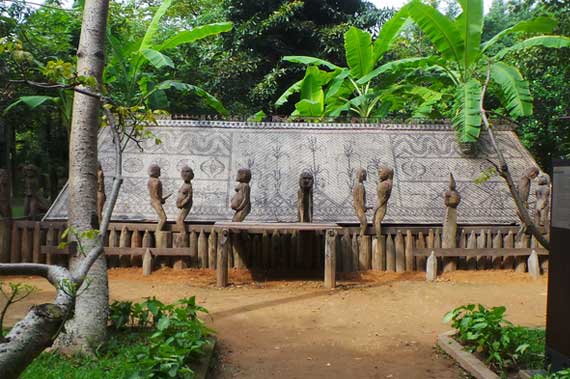
The funeral home of the Gia Rai ethnic group, Tay Nguyen
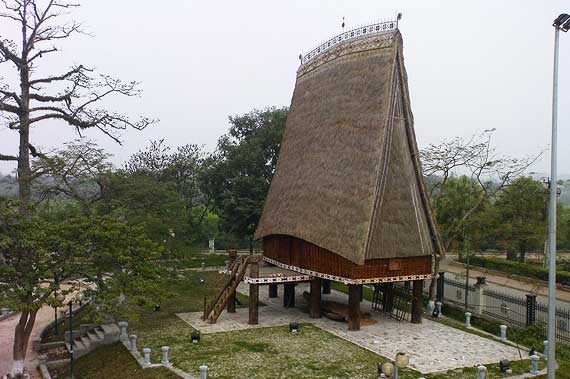
The "Rong" house of the Ba Na ethnic group, Tay Nguyen, 19 m high
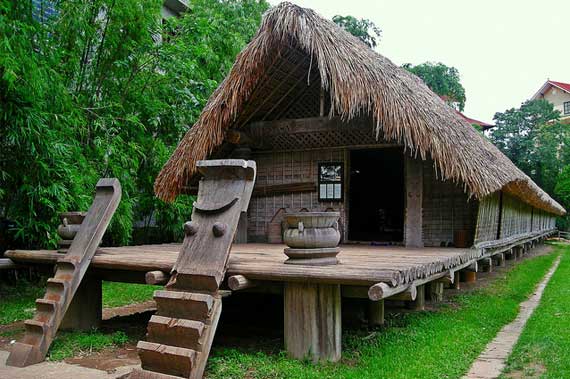
The E De Longhouse, Dak Lak
It should be noted that the traditional E De house (42.5 m long) bears witness to a matriarchal tradition. That is, the larger the family, the longer the house. In fact, there were homes in their community that were up to two hundred metres long.
Finally, the part devoted to Southeast Asia highlights the varied cultures of the countries of the region by focusing on five subjects: textiles, daily life, social life, performing arts and religious-beliefs. You will have the opportunity to understand a brief summary of the particularities of Vietnam and also of its best neighbours as well as the integration between them.
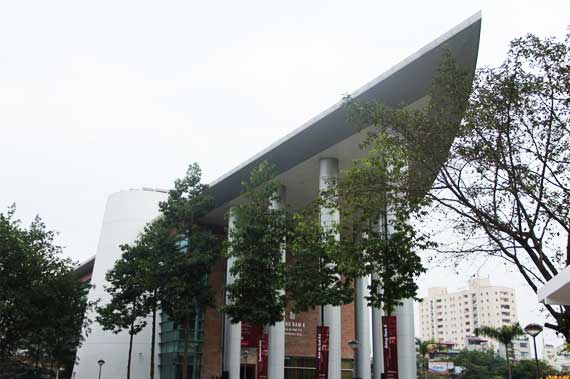
The museum of Southeast Asia "Canh dieu" or Kite
It is here that annual events take place including popular festivities, craft fairs and exchanges between ethnic groups in Vietnam but also of those in the region. For its green and friendly setting, this place is tempting for children and photography enthusiasts.
With its documentary resources with 15,000 objects, 42,000 films and colour photos, this book constitutes a sensational showcase on the richness of Vietnam's cultural heritage. Not to mention that the TripAdvisor site ranked Vietnam Museum of Ethnography as 4th place among the 25 most attractive museums in Asia in 2014. The wonder will be there, the museum as beautiful as it is interesting, without doubt, a must-see during your visit to Hanoi.
Location: Nguyen Van Huyen street, Cau Giay district, Hanoi.
Open 8:30 a.m. to 5:30 p.m., every day of the week, except Monday and the Tet Nguyen Dan.
Related articles:
Comment
Other Blog
Categories
Latest News
on 27 Apr, 2023      
on 15 Apr, 2023      
on 28 Mar, 2023      
 Español
Español Français
Français



















F
on Jan 3, 2024Igor Mozetic
on Apr 8, 2023Ira Beale
on Feb 10, 2023Phạm Phú Toàn
on Jan 28, 2023Max Stover
on Jan 11, 2023